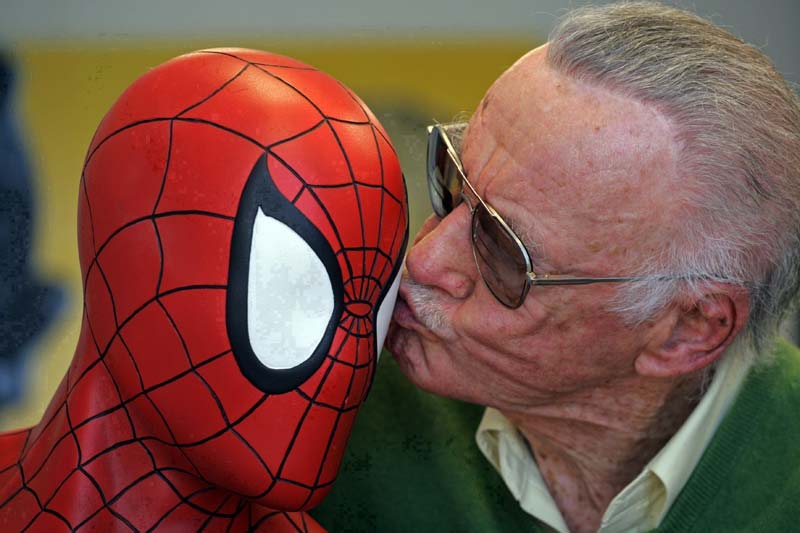 Ringo Chiu
Ringo Chiu
Comic books get a bad rap, although not nearly as bad as they used to. There was a time when comic books were the cause of an all-out moral panic. After the release of psychiatrist Fred Wertham's book "The Seduction of the Innocent," the
"Superman (with the big S on his uniform -- we should, I suppose, be thankful that it is not an S.S.) needs an endless stream of ever new submen, criminals and 'foreign-looking' people not only to justify his existence but even to make it possible," Wertham wrote.
As silly as all that was, at least the anti-comic puritans took comic books seriously. And while Wertham et al. went too far in the wrong direction, comics are an important window into our society.
Prior to
In Superman's first adventure (Action Comics No. 1), long before he ever battled
The New Deal was a real-world example of political philosopher
Lee grew up professionally in this "Golden Age" of comics, but he also rebelled against it. While a member of the so-called Greatest Generation, Lee better represented the more ironic attitudes of the postwar generation. His superheroes struggled with their powers and their moral responsibilities. Spider-Man, the quintessential Marvel character (at least until the introduction of Wolverine) was a nerdy, angst-ridden teenager who only reluctantly accepted his role and the idea that "with great power comes great responsibility." Lee's heroes quarreled with each other, had romantic setbacks and sometimes even struggled to make the rent.
The baby boomers, Lee's target audience, were plagued with a great unease about living up to the legacy of their parents' generation. "We are people of this generation," begins the Port Huron Statement, the 1962 manifesto that largely launched the '60s protest era, "bred in at least modest comfort, housed now in universities, looking uncomfortably to the world we inherit." They believed they were special but didn't know exactly what to do about it.
This kind of ambiguity suffused Marvel's storylines. The X-Men were mutants, a government-persecuted minority community, bitterly divided between assimilationists and rejectionists. Their powers were a thinly veiled metaphor for the confusion of puberty. The Thing, constantly harassed by a local street gang, hated that he had become a grotesque, but when given the choice of becoming human again, he opted to keep his powers.
Of course, there was plenty of fighting, derring-do and onomatopoetic "pows," "bamfs" and "snikts." But future historians looking to understand the near-century of Lee's lifetime would be well-advised to look at his life's work.
(COMMENT, PLEASE, BELOW)
Jonah Goldberg is a fellow at the American Enterprise Institute and editor-at-large of National Review Online.


 Contact The Editor
Contact The Editor
 Articles By This Author
Articles By This Author